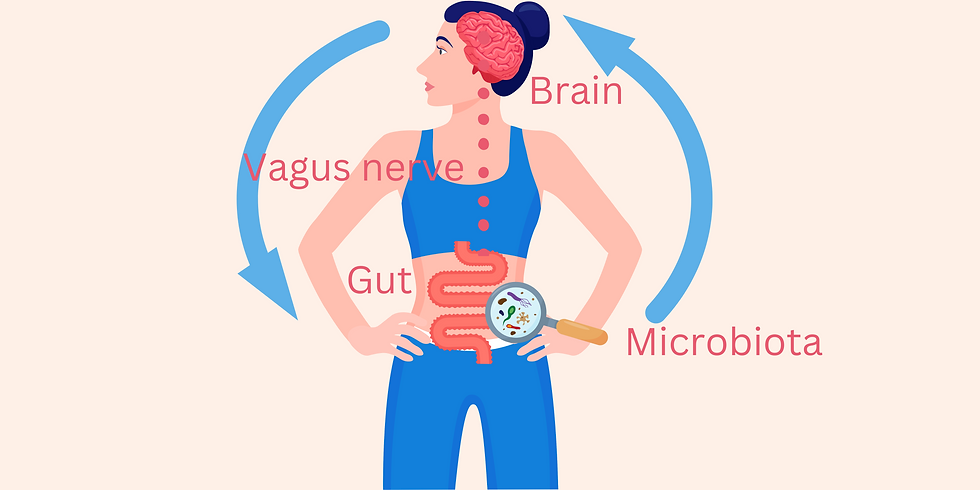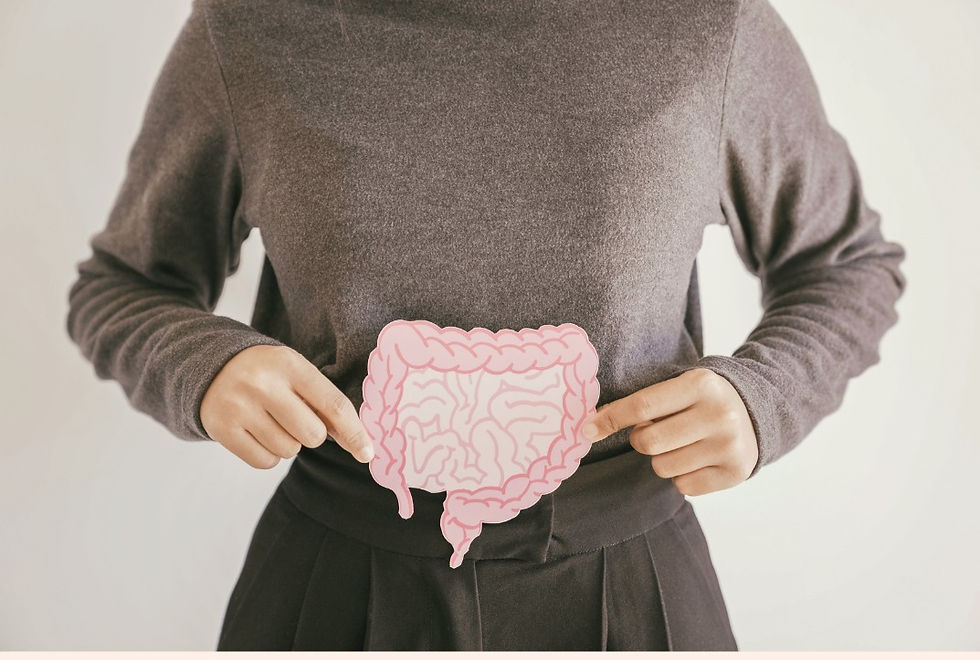Did you know you had a second brain?
- Tati
- Mar 4, 2024
- 2 min read
THE GUT- BRAIN- AXIS
“Listen to your gut, it holds the wisdom of centuries.”
― Giulia Enders
Oh, those butterflies in my stomach! Have you ever experienced this feeling when excitement or uneasiness kicks in? Ever had that “gut feeling” about someone or something? Well there you are, you’re already familiar with the gut-brain axis at work.
The gut-brain axis is a two-way communication between the enteric nervous system (also called your ‘second brain’), which is found in the lining of the entire gastrointestinal tract, and the central nervous system (your brain and spinal cord).
Your gut and brain are connected both physically and biochemically in a number of different ways:

Brain - Vagus Nerve - Gut
Your brain and gut are physically connected through neurons.
They are found in your brain, approximately 100 billion and also in your gut, which contains around 500 million neurons.
These neurons are connected to your brain through nerves.
The biggest one being the vagus nerve - the communication highway.
It originates in the brain stem and extends down the neck and into the chest and abdomen.
All day long the vagus nerve receives a variety of information from the gut and transmits it to the brain and vice versa.
Brain - Gut - Microbiota
On a biochemical level, the brain and gut communicate over microorganisms in your gut microbiota. They play an important role in:
digesting food
activating the immune system
your behaviour and wellbeing
brain development and health
The production of metabolic compounds produced by the abundant community of ~100 trillion microorganisms including bacteria, viruses and fungi enable the creation of so called neurotransmitters. These gut-brain-messengers produced in your gut include:
Serotonin - Up to 90% of the “happiness hormone” is produced in your gut
Gamma-aminobutyric acid (GABA) - helps you control fear and anxiety
Short-chain fatty acids - may reduce the risk of various diseases and are important for forming the blood-brain barrier (see our January blog)
Dopamine - influences mood and feelings of reward and motivation and regulates body movement
Gut microbes also metabolise bile acids and amino acids to produce other chemicals that affect the brain
Your microbiota is as unique as you are!
Depending on nutrition, exercise, stress, medication, environment etc. you change and influence your microbiota and its function.
Studies suggest that disturbances along the brain-gut-microbiota axis may significantly contribute to:
Neurodegenerative disorders such as Alzheimer’s disease
Inflammatory diseases
Gastrointestinal disorder (e.g. irritable bowl syndrome)
Depression
Type 2 diabetes
Obesity
Heart disease



Comments